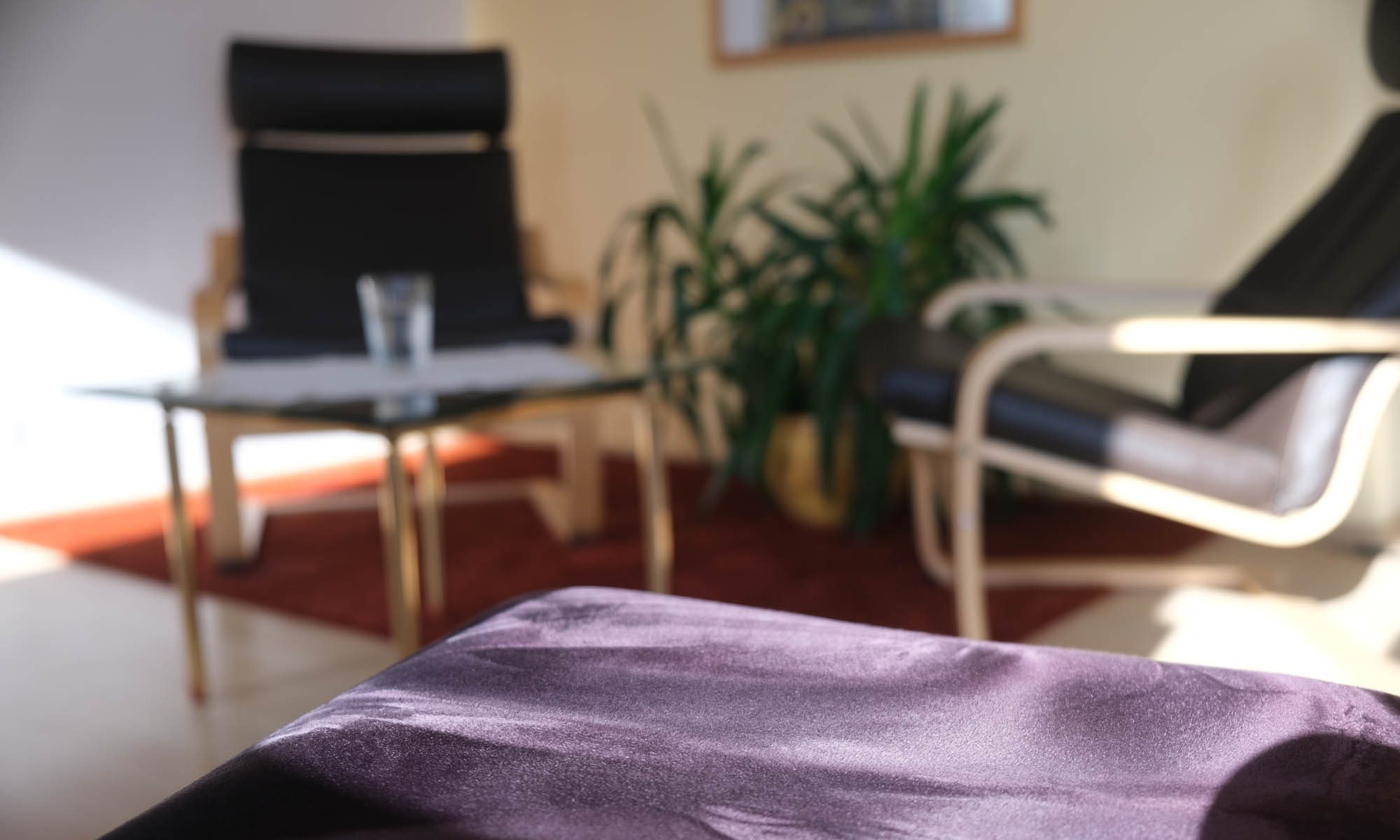
The Yes, and principle for finding your composure
The Yes, and principle for finding your composure: Sometimes life throws challenges our way, we reach our limits, and our lightness gets lost along the way. We might find ourselves stuck in performance mode, just functioning and ticking off tasks.
As a result, our composure slips away. And when disruptions happen, they don’t fit into our plan – we’re not amused, or even get upset. But life rarely goes exactly as planned.
Disruptions are part of life. Just think back to the start of the corona crisis: suddenly we were working from home – maybe even from our child’s bedroom in the beginning – doing yoga online, and adjusting on the fly.
Here are two powerful examples of the Yes, and principle for finding your composure, which I’ll explain in more detail below: “Yes, and I’ll make the best of the situation.” A mindset that’s solution-oriented – without switching off critical thinking.
The Yes, and principle – 2 powerful examples (videos)
Professor Robert Kelly, an expert on South Korea, was being interviewed live by the BBC when his children came crashing in. First his dancing daughter and then her baby brother hot on her heels in his baby walker. Their father managed to ignore the chaos behind him when his wife rushed into the room to remove the agitated children. At first, he seemed a bit stressed but then he took it with humour, like the BBC interviewer.
The video went viral and people loved it. Rightly so, it is hilarious and a great example of poise. I’m sure that the situation wasn’t easy for Professor Kelly and presumably he used the “Yes, and principle” rather unconsciously.
Another example for composure is a Professor from Israel. He was giving a lecture when the baby of a student began to cry. The mother was preparing to leave with her child when Professor Engelberg picked up the baby and continued on with his lecture, holding the baby: Video – Very powerful!
Composure at the push of a button? Sorry, that’s unrealistic
Again and again, in situations we can’t change, we often lack the laid-back behaviour we would wish for. E.g. in online meetings, the technique isn’t working. Thoughts like: “I could do more important things in the meantime!” or even “That sucks!” are coming up.
Or, that’s now a very German thing: a long queue in front of a checkout. “I can’t believe it, the other checkout is quicker than mine. And now they even page a colleague to come over. So annoying!! I have more important things to do!” Or Your child rushing for the loo, just the minute you were to set off. You have a ferry to take!
We get agitated and needless to say, we waste our energy. Most importantly, it will be more difficult to be laid-back in situations which are really important and that need our composure. Being relaxed doesn’t work at the push of a button.

Composure
- is a question of our attitude and (mindset)
- requires practising
- isn’t just related to our mind. Our physical bodies shape the way we think (embodiment) and
- is a process.
➡ Inner attitude (mindset)
If I tend to be a tense person, I’m likely to lack composure in many areas of life – especially in situations that are important to me.
So, how can I work on my inner attitude?
The Yes, and principle for finding your composure
The Yes, and principle is a pillar of improvisation – finding a solution creatively on the spot, without preparation. Accepting what is and weighing up the scope of my action.
Below, I will introduce the ‘Yes and’ principle using the following points:
- “Yes, and …” instead of “Yes, but …”
- Yes, and out of your comfort zone
- Yes, and mistakes happen. So: Say yes to mistakes. Say yes to failure.
- Yes, and with humour life is more relaxed.
- Feeling relaxed on a physical level (Embodiment)
- A question of training
- Personal development is a process
- In a nutshell: The Yes, and principle for finding your composure
Let’s get started: ![]()
-
“Yes, and …” instead of “Yes, but …”
The Yes, and”-principle encourages you to think in solutions and shape the future instead of thinking in problems.
Our thinking affects our mindset.
Of course, “Yes, buts” creep into my thinking, too. I was at a training course which was absolutely amazing. Still, at the end of one day I was thinking: “Well, I could have done better today.” and I was going to retreat as I’d have done it in the past. But then I thought: “Nope, you know how resilience works.” and went out with other participants instead and had such a funny evening.
Observe yourself:
→ When does your “yes, but” thinking get in your way?
→ And when could you replace it with a “yes, and” mindset – as a way to handle a situation more constructively?

-
Yes, and out of your comfort zone
We human beings are often lazy and enjoy staying in our comfort zone. That gives us a certain control and a perceived sense of security. The thing however is that we’re becoming more and more anxious in areas that are out of our control.
When I drove to England, for the first time driving myself, it was a super massive step for me to leave my comfort zone, especially after a car accident I’d had a couple of years before. I was even close to panic attacks. I wrote about it in my blog entry “Making your goals reality – every step counts”. I share some tips there as well.
I’d like to encourage you to step out of your comfort zone every now & then
Not with pressure – but with curiosity:
→ What could you try that’s new?
A new restaurant? A holiday destination you’ve only seen in pictures?
Or maybe even a small moment on stage?
→ What might your next step outside your comfort zone be?

-
Say yes to mistakes. Say yes to failure.
Mistakes are part of our learning experience. Failure, too. When we accept both and learn from them instead of reacting negatively towards them, we can turn them into a positive learning experience.
In a training course I attended we had to give short impromptu presentations about proverbs we had drawn from a pile. Three rounds. The first two rounds went well, then I got stuck with the last proverb: “All good things come in threes.” I somehow had no idea what to say.
I thought: “No idea, really – I’m totally blank at the moment.” So, I talked about the shape of the number three and just got carried away, completely off topic. We all had fun in our group (One of my fellow players was a mathematician. 🙂 )
I enjoyed the feeling of failing and having fun to do so. It feels so good and liberating not to take life too seriously. Isn’t it serious enough already?
Food for thought:
→ How do you deal with your mistakes?
→ What happens when you take a step back and look at them from a bit of distance:
Are they really that bad?
How could you respond differently?
→ And very importantly:
What positive learning experience might be hidden in there?

-
Yes and with humour life is more relaxed
I love British humour. Not taking things too seriously. That’s also what I like about the video with Professor Kelly. They take it with humour. What else could they do?
In an improv session, we were doing storytelling, Ella, our game leader, brought me into the game. I had to play another player’s wife: That was the easy part.
But then came the twist: In my role, I was an expert for dolphins. I was to show the differences between Scottish and German dolphins by demonstrating it.
My first thought was: “What the hell is Ella asking of me? Honestly?! How can I do this?” But then I thought: “Who cares? Nothing to lose.”
I think, had the dolphins listened to me, they would have been disturbed. We had lots of fun in our session. Humour is so wonderfully relaxing.
What about a bit more lightness?
→ Try out failing, again and again and in a safe environment and enjoy the moment when you don’t take life too seriously and your life gains lightness.



➡ Feeling relaxed on a physical level (Embodiment)
Stress also shows on a physical level, e.g. shoulder and neck pain, in our back but also in our face. Make sure, you find a balance on a physical level, e.g.
- Dancing
- Exercises for your shoulder and neck
- Walking
- Moving in general
- Making faces (+ good mood on top)
- Shaking stress off. That’s what I do regularly, especially after being very focused at work. Shake off the stress. Dogs shake themselves, too. 🙂

Use your body to support you:
- Open yourself up for your life: Roll your shoulders back and stretch your chest.
I’ve written a blog entry on power posing in which I explain how our physical bodies shape the way we think and feel. I also share how I successfully treated a shoulder bursitis on my own using this approach.
I practise this regularly myself as insecurity and anxiety leave you with a feeling of restriction and they block your thinking opposed to open poses.
- Watch your breathing: I make sure that my feet are grounded and I breathe deeply in through my nose, I hold my breath a short time and I breathe out through my mouth. Breathing out is longer than breathing in.
- Invite lightness & joy into your life.
➡ A question of training
The „Yes, and”-principle for finding your composure is also a question of training like the playing of an instrument, doings sports or speaking another language. We often only see the results when people seem to master things effortlessly. But the efforts behind it are unveiled to us.
I apply what I’ve written above regularly. Some of it comes naturally, some of it I had to learn or to recall from former times. When you feel the positive effect, it won’t feel like a must anymore.
Look for
→ opportunities. Try out and find out what works best for you.
→ like-minded people who support you.

➡ Personal development is a process
When you work on your inner attitude, it’s important to remember that change takes time. You may be confronting beliefs that have shaped your thinking for decades – things like “I shouldn’t make any mistakes.” “I must perform!” “I have to meet other people’s expectations!”
Letting go of these patterns is rarely immediate. However limiting they may be, they’ve often been part of our inner world for many years. Shifting them is a gradual process – one that calls for time, patience and a good deal of kindness towards yourself.
Not every belief is entirely negative. The ones mentioned above can drive good performance and have their benefits. As with most things, it all comes down to finding a healthy balance.
Words of encouragement:
→ Look for people who care about you and who will support you on your way.
→ Support yourself by treating yourself how you would treat others.
In a nutshell: The Yes, and principle for finding your composure
We can’t ban stress & strain out of our lives, that’s unrealistic. But we can learn to live with the adversities of life and face them with the “Yes, and”-principle for finding our composure.
I’d like to invite you to
- make room for the “Yes, and” part of your life
- accept the adversities of life
- open up your body with an open pose
- practise regularly
- support yourself
- bring lightness & humour into your life
Give it a try. It feels good:-)

Are you interested in the topic
and would like to have further support?
–> Then my coaching could be interesting for you.
-> Alternatively, I offer resilience group coaching for companies.
Are you interested? Then I look forward to hearing from you.
Did you enjoy the post? I’d be happy if you shared it with others or subscribed to my newsletter for more inspiration. 🙂
